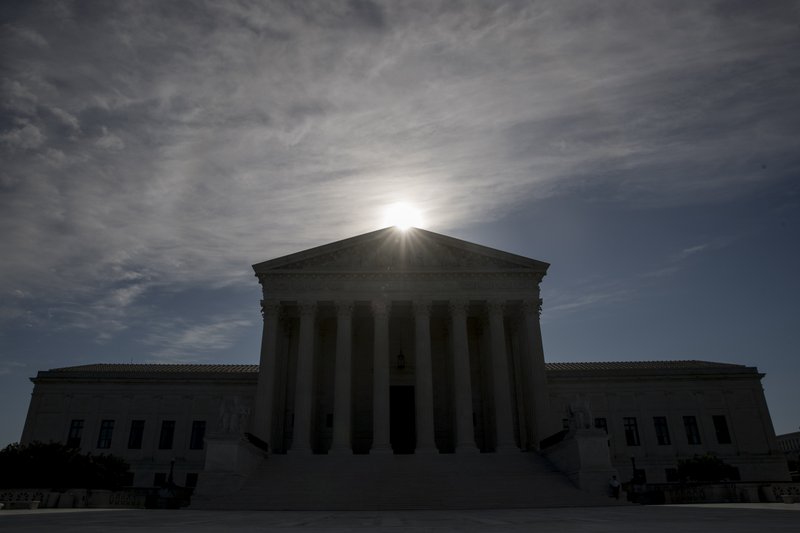National
High court backs Nestle, Cargill in child slave labor suit

WASHINGTON (AP) — The Supreme Court sided with food giants Nestle and Cargill on Thursday and threw out a lawsuit that claimed they knowingly bought cocoa beans from farms in Africa that used child slave labor.
The justices ruled 8-1 that an appeals court improperly let the lawsuit against the food companies go forward. The companies had been sued by a group of six adult citizens of Mali who claimed they were taken from their country as children and forced to work on cocoa farms in neighboring Ivory Coast.
“Although respondents’ injuries occurred entirely overseas, the Ninth Circuit held that respondents could sue in federal court because the defendant corporations allegedly made ‘major operational decisions’ in the United States. The Ninth Circuit erred by allowing this suit to proceed,” Justice Clarence Thomas wrote in a majority opinion for the court.
The case had been twice dismissed at an early stage before being revived by the U.S. Court of Appeals for the Ninth Circuit. When the case was argued in December, then-President Donald Trump’s administration backed Nestle and Cargill.
The Malian citizens had argued that Minneapolis-based Cargill and the American arm of Switzerland-based Nestle “aided and abetted” their slavery as children by, among other things, buying cocoa beans from farms that used child labor. The group sued seeking to bring a class action lawsuit on behalf of themselves and who they say are thousands of other former child slaves.
Nestle and Cargill have maintained throughout the case that they have done nothing wrong and that they have taken steps to combat child slavery. In statements following the ruling both Nestle and Cargill repeated that they remain committed to working to combat child labor in the cocoa industry.
The case involves a law enacted by the very first Congress in 1789, the Alien Tort Statute, which permits foreign citizens to sue in U.S. courts for human rights abuses. But Thomas said this case wasn’t properly in U.S. courts.
“Nearly all the conduct that they say aided and abetted forced labor — providing training, fertilizer, tools, and cash to overseas farms — occurred in Ivory Coast. … But allegations of general corporate activity — like decisionmaking — cannot alone establish domestic application of the ATS,” he wrote.
Attorney Paul Hoffman, who argued the case for the Malian citizens at the high court, said in a statement that he was “disappointed that the Court has delayed our clients’ long quest for justice.” But he said it was not the end of the case. He said intends to ask a lower court to be allowed to amend the group’s lawsuit and allege that Cargill and Nestle “controlled the system of forced labor from the United States.”
The high court in recent years has limited the use of the Alien Tort Statute. In 2018, the court ruled that foreign businesses cannot be sued under the law. In that case, the court rejected an attempt by Israeli victims of attacks in the West Bank and Gaza to use U.S. courts to sue Jordan-based Arab Bank, which they said helped finance the attacks.
The case is Nestle USA v. Doe I, 19-416, and Cargill Inc. v. Doe I, 19-453.

